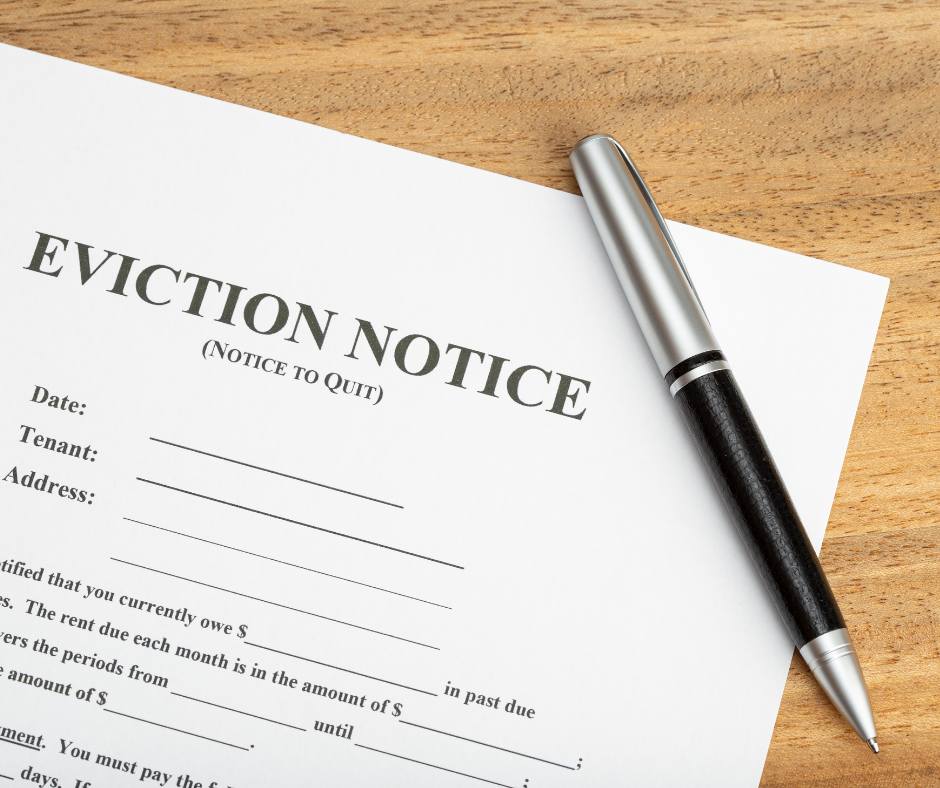One of the most delicate issues landlords face is eviction — specifically, can a landlord forcefully evict a tenant who refuses to leave? Eviction is a legal process, and understanding it is crucial for maintaining a harmonious landlord-tenant relationship. It’s important to know that, under Connecticut law, forcefully removing a tenant without following the proper legal procedure is not only unethical but illegal.
Here is a more detailed & step-by-step guide to Legal Eviction:
- Valid Reasons for Eviction: Before considering eviction, ensure you have a valid reason. These can include non-payment of rent, violation of lease terms, damage to property, or illegal activities conducted on the premises.
- Notice to Vacate: The first step in the eviction process is to provide the tenant with a formal Notice to Vacate. This notice must specify the reason for eviction and the time frame in which the tenant must rectify the issue or vacate the property.
- Court Process: If the tenant does not comply with the Notice to Vacate, the next step is to file an eviction case in court. It’s essential to provide all necessary documentation, including the lease agreement, records of communication, and any other relevant evidence.
- Hearing and Judgment: Both parties will have the opportunity to present their case during a court hearing. If the court rules in favor of the landlord, a judgment will be issued for the eviction.
- Execution of Eviction: Only after obtaining a court order can a landlord proceed with the eviction. This is usually carried out by a state marshal, ensuring the process is done legally and safely.
Connecticut, with its diverse mix of urban and rural properties, presents a unique set of challenges and considerations for landlords. According to recent data, Connecticut sees an average of 20,000 eviction filings per year, a testament to the complex interplay between landlords and tenants in the state.
Let’s See Why Eviction Happens in The First Place

The primary reasons for evictions in Connecticut mirror national trends, with non-payment of rent leading the charge, followed by lease violations and tenant damage to property. Interestingly, approximately 60% of these evictions are initiated for:
- non-payment,
- highlighting the economic challenges tenants face
- and the need for landlords to understand and navigate these issues sensitively.
Let’s Understand the legalities of eviction laws
Eviction laws in Connecticut are designed to balance the rights of tenants with those of property owners. The state mandates a specific series of steps starting with a notice period, which varies from 3 days for non-payment of rent to 15 days for lease violations, reflecting the state’s commitment to providing tenants with a fair chance to rectify issues.
Here are the bullet points focusing on the legal aspects of eviction in Connecticut for easy understanding:
- Reasons for Eviction:
- Non-payment of rent (60% of cases)
- Lease violations
- Property damage
- Notice Period Requirements:
- 3 days for non-payment of rent
- 15 days for lease violations
- Eviction Success Rates and Timelines:
- Approximately 40% of eviction filings lead to eviction
- Timeline from filing to eviction ranges from 45 to 90 days
- Legislative Changes Impacting Evictions:
- Introduction of emergency rental assistance programs
- Temporary moratoriums on evictions during the pandemic
These points succinctly capture the key legalities surrounding eviction processes in Connecticut, emphasizing the need for landlords to be well-informed and act within the legal framework.
Success Rates and Timelines: What to Expect
Of the eviction filings in Connecticut, approximately 40% result in actual evictions, underscoring the importance of a well-grounded legal approach. The average timeline from filing to eviction, contingent on the case’s complexity, ranges from 45 to 90 days, emphasizing the need for prompt and proper legal action.
The Impact of Legislation: Recent Changes
Recent legislative changes aimed at protecting tenants, especially during challenging economic times, have introduced additional considerations for landlords. For example, the introduction of emergency rental assistance programs and temporary moratoriums on evictions during the pandemic have significantly affected eviction proceedings, underscoring the importance of staying informed about current laws and policies.
Strategies for Success: Beyond the Numbers
Successful property management in Connecticut involves more than just understanding eviction statistics; it requires a comprehensive strategy that includes thorough tenant screening, clear communication, and, when necessary, the judicious use of legal proceedings. At Idoni Management, we emphasize the importance of building positive landlord-tenant relationships, backed by data-driven insights and a deep understanding of local laws.
If you require any help in eviction or property management in Connecticut – Idoni Management is at Your Side.
As your partner in property management, Idoni Management is dedicated to equipping you with the knowledge, strategies, and support needed to navigate the complexities of eviction and tenant management in Connecticut. Our commitment to excellence ensures that your properties are managed efficiently and legally.
For inquiries and assistance, Contact Us today.



